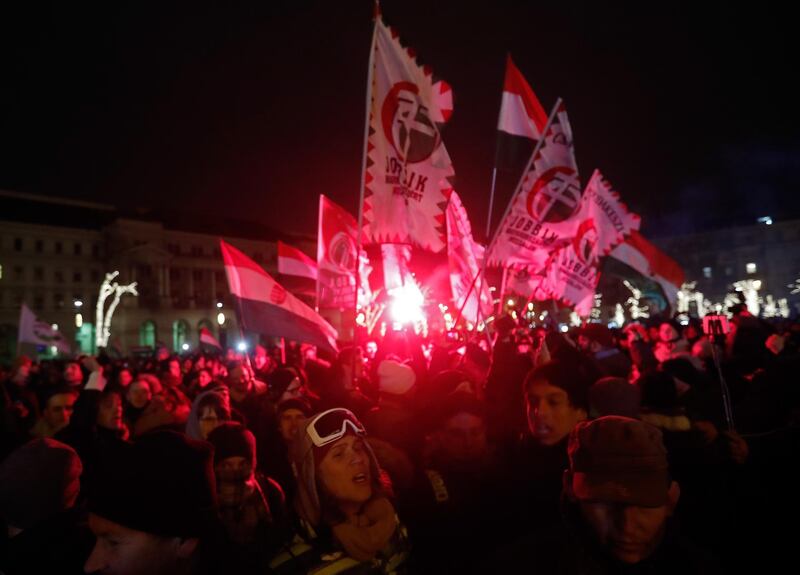Street protests against Hungarian leader Viktor Orban’s illiberal regime grew as thousands of people demanding independent courts and a free press converged on the headquarters of the state television network in Budapest late on Sunday.
Police used tear gas to keep demonstrators from storming the building after state TV officials refused a request by opposition MPs to go on air with their demands. These included rescinding laws passed days earlier which allowed employers to their workers for more overtime and created a top court under government oversight. The measures sparked four protests in the past week, of which Sunday’s was by far the largest.
The developments highlight the growing centralisation of power under Mr Orban, who won a third consecutive election in April and whose government is being investigated by the European Union about accusations that it is undermining the rule of law.
_______________
Read more:
Hungary rejects European accusations of breaching EU values
_______________
”What Orban is doing is nothing less than trampling on European values,” said Anita Seprenyi, who came to the protest draped in an EU flag.
Hungary’s opposition parties vowed to emulate the French "yellow vest" movement – which managed to win concessions on pensions, taxes and the minimum wage after a month of protests – but it is far from certain that the same will work on Mr Orban. Before the protest, his Fidesz party had roughly the same level of support as about half-a-dozen opposition parties combined.
Mr Orban has converted state media into a government mouthpiece that rarely gives fair airtime to opposition viewpoints. Complementing that is one of Europe’s biggest pro-government media empires, comprising hundreds of commercial outlets brought under a single legal umbrella last month and which Mr Orban exempted from regulatory checks.






